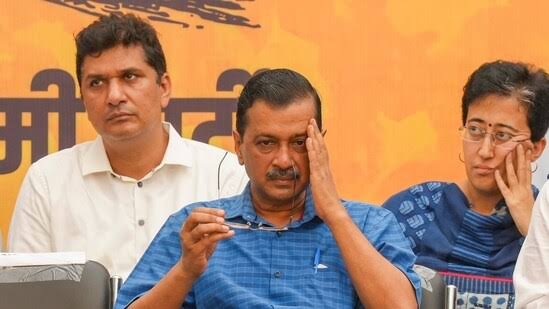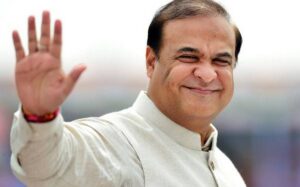New Delhi, September 16, 2024 – In a surprising political development, Arvind Kejriwal, the Chief Minister of Delhi, has announced his decision to step down from his position, setting the stage for a significant transition in the capital’s governance. Kejriwal, who has been at the helm since AAP’s historic win, made his intentions clear over the weekend, stating his desire to seek a fresh mandate from the people amidst allegations of corruption linked to the Delhi Excise Policy case, from which he was recently released on bail.
Kejriwal’s announcement came on September 15, with a promise to resign within 48 hours, aiming to clear his name through public voting rather than continuing under the cloud of controversy. He has scheduled a meeting with Lieutenant Governor VK Saxena on September 17, where he is expected to formally tender his resignation. This move has sparked widespread speculation about who will succeed him as the next Chief Minister of Delhi.
The Aam Aadmi Party (AAP) has moved swiftly to address the impending leadership vacuum. A legislative meeting at Kejriwal’s residence is set for September 17 to decide on his successor.
Among the frontrunners are:
– Atishi: Currently holding multiple key portfolios in the Delhi cabinet, she’s seen as a top contender due to her work in education reform and her public image.
– Saurabh Bharadwaj: Known for his visibility during the party’s recent crises, he has been actively involved in discussions regarding the new CM.
– Kailash Gahlot: A senior member with significant portfolios, his experience and prominence among the Jat community could play in his favor.
– Gopal Rai: Another senior minister, handling environment and development, known for his organizational skills within AAP.
Interestingly, there’s also buzz about Sunita Kejriwal, Arvind Kejriwal’s wife, potentially taking up the mantle, suggesting an attempt to implement a model where family members take office, reminiscent of political strategies seen in other parties.
Strategic Timing and Elections
Kejriwal has called for early elections in Delhi, proposing they be held in November 2024, aligning with Maharashtra’s polls, instead of the scheduled February 2025. This strategic move aims to capitalize on any anti-incumbency sentiment against the central government and to reframe his political narrative from one of corruption to one of public endorsement.
Public and Political Reaction
The announcement has led to varied reactions. While some see it as a bold move to restore his image through democratic means, critics argue it’s a tactic to install a proxy government while Kejriwal still pulls the strings from behind. The BJP has labeled this decision as one made out of “compulsion” rather than principle.
Looking Ahead
As Delhi braces for this unexpected political shift, the focus is not only on who will lead next but also on how this transition will affect AAP’s governance and its strategy for upcoming elections. The decision to advance elections, if approved by the Election Commission, could set a new precedent for how political crises are managed in India’s capital.
This transition period will be closely watched, as it could redefine AAP’s future and influence Delhi’s political landscape significantly in the months to come.



